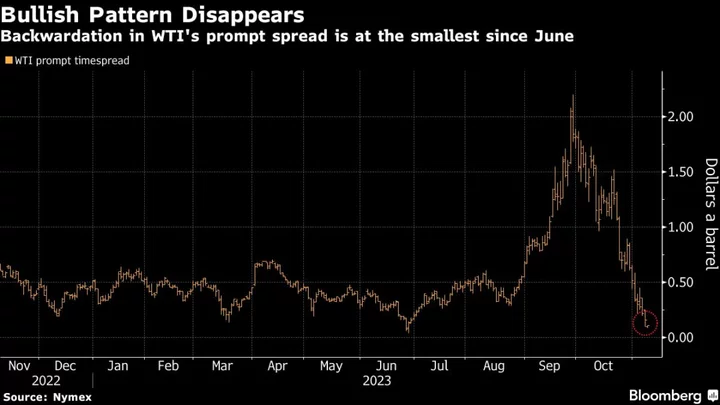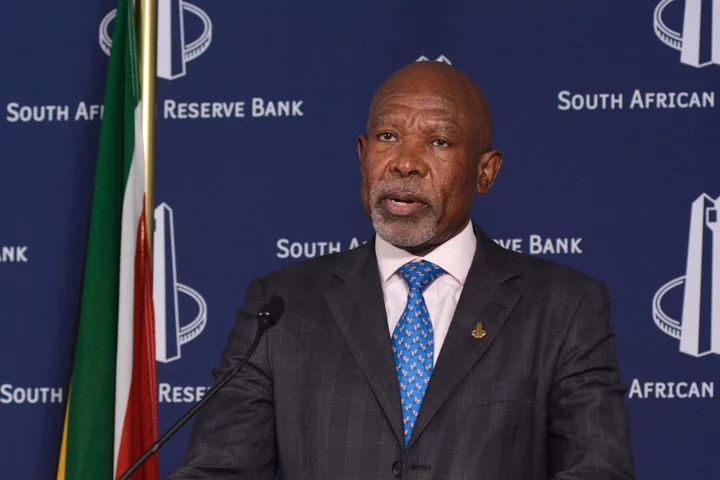Barclays Plc has ramped up the business of financing trades for investors in Asia, part of a global plan to expand its markets franchise as rivals have scaled back.
The financing business’ share of overall Asian market revenue almost doubled from a year ago and is now close to matching the overall 32% contribution the business has globally, according to people familiar with the matter.
The region’s global markets revenue, which includes intermediation business, has doubled since 2019 after increasing the headcount in sales and trading by 20% as of December last year, one of the people said. The people asked not to be identified because the firm doesn’t break out the businesses numbers.
Barclays is tapping an increasing appetite from Asia quantitative and multi-strategy hedge funds for its prime financing business, and demand from private bank clients for cross-border structured products including derivatives linked to US stocks, according to Hossein Zaimi, the region’s head of markets, who joined the bank in May last year.
Globally, the bank is pivoting to the financing business to reduce reliance on bumpy trading revenue. In part that’s to ensure it can meet its pledge of at least a 10% return on tangible equity even during a downturn in activity. The expansion of the more predictable financing business has helped the bank deliver its best ever quarter this year in Asia, according to Zaimi.
“If you don’t achieve that return in this market at this bottom of the cycle, you don’t have the oxygen, you die, or you don’t go very fast.” said Zaimi. “Once you don’t have the right return, your shareholder will tell you either cut capital, or stop investing in tech.”
The British lender has plotted to revive its markets business in Asia since 2018, earlier carving out a role for ex-Credit Suisse Group AG banker Matt Pecot to focus on equity derivatives and prime brokerage. During a global global revamp in 2016 it closed seven Asia offices, including the cash equities business while sticking with electronic trading, prime brokerage and equity derivatives.
It reopened office in Australia in 2018 and Taiwan last year. Pecot retired in March last year and was replaced by Zaimi, the former global head of equities and global co-head of securities financing at HSBC Holdings Plc.
Still, prime brokerage has proved a risky business for some of its rivals. Several firms, including Credit Suisse, have exited the business over the past years after losses. Prime brokers largely cater to hedge funds, lending them cash and securities for trading. Because hedge funds trade much more actively than mutual or pension funds, the relationships can lucrative.
The main thrust of expansion was to provide financing to global clients seeking access to Asian market, and also to facilitate Asian clients buying dollar-denominated equities, currency and fixed income products, Zaimi said.
The main thrust of expansion was to provide financing to global clients seeking access to Asian market, and also to facilitate Asian clients buying global currency and fixed income products denominated in US dollars, Zaimi said. Apart from offering equity and fixed income financing to prime clients, the bank has bolstered offerings in corporate derivatives and macro products such as bond forward contracts.
Last year, it hired close to a dozen people in Asia to grow its special situations structured credit and private lending business as defaults in China increased. The segment’s expansion has helped Asia align with parts of the bank around the world, where financing has already been at about a third of overall markets revenue, Zaimi said.
The shift comes as global banks reported decline in trading revenue amid a drop in volatility. The VIX, a measure of the cost of S&P 500 options, earlier this month fell to the lowest in more than three years.
While focused on its financing buildout, the bank is seeking to close the gap with its Wall Street rivals in intermediation, Zaimi said. The bank is deploying capital to build its foreign exchange electronic trading platform, expand equity derivatives operation and emerging market macro trading capabilities.
It recently hired five traders in Singapore and promoted senior female talent including Yun Zhang, Angela Liu and Shella Wang.
Globally, the company has taken advantage of market dislocations and has scooped up a trio of traders — Dan Brand, Brandon Porter and Ilya Feldman — from Credit Suisse for high yield and securitized products trading last year. The return of tangible equity of its corporate and investment banking business reached 15.2% in the first quarter.
“We’re investing when people are scared,” Zaimi said.
(Adds global’s 15.2% ROE in next to last paragraph.)









